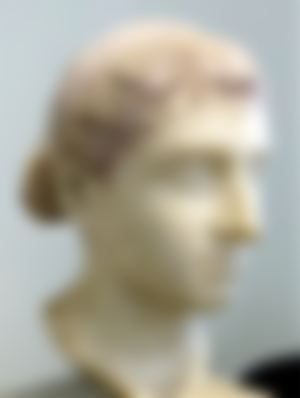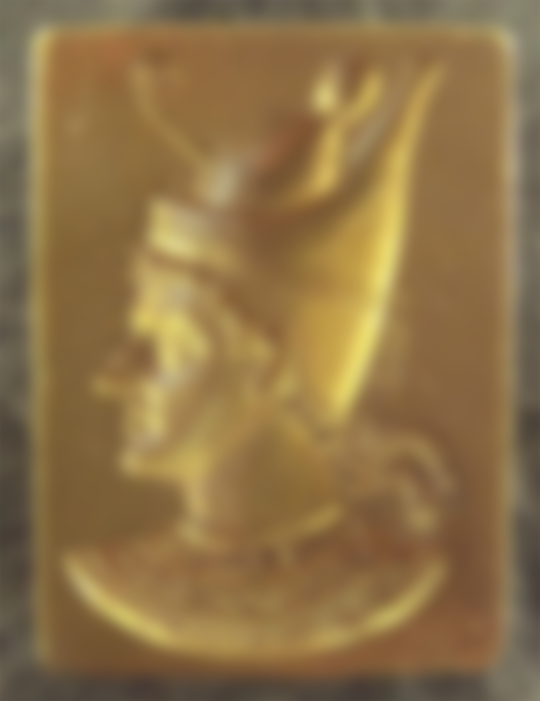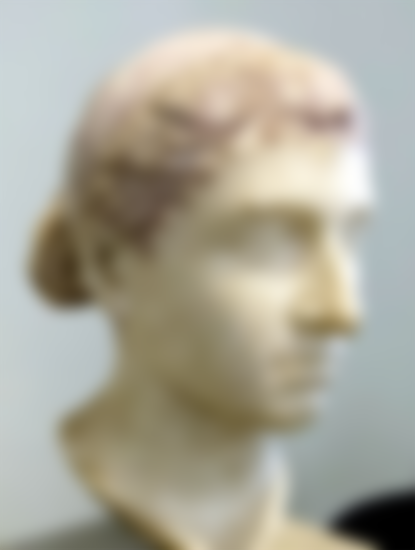This is a continuation of "Cleopatra - The Serpent of the Nile?"
The Ptolemaic Dynasty
Cleopatra belonged to the Ptolemaic dynasty, which ruled Egypt from 305-30 BC. It started with Ptolemy Soter, one of Alexander the Great's diadochi, one of the generals who shared the empire of Alexander after his death. Ptolemy first was satrap in Egypt, but proclaimed himself king in 305 BC, adopting the name Ptolemy I. The dynasty he founded came to rule Egypt as the last pharaonic dynasty until 30 BC when Ptolemaic Egypt was incorporated into the Roman Empire.
Ptolemaic Egypt, with its capital, Alexandria, founded by Alexander the Great, became the capital of the Hellenistic culture, and can be said, the cultural centre of the world west of India.
Alexandria was a multicultural melting pot where many cultures, old and new, were mixed to fertile soil for great intellectual creativity. Much of what is preserved by knowledge from ancient cultures in Egypt, Persia, Mesopotamia, and so on, was compiled and preserved to posterity by intermediaries in Alexandria.

The Ptolemaic Dynasty originated from Macedonia and although the family was to an extent culturally Egyptiansed, they spoke Greek and did not genetically mix with the Egyptians. It was maintained by inbreeding, not to say incest. An uncle often married his niece and a brother his sister (a Pharaonic tradition in Egypt - in ancient times applied to the ruling family in many places of the world). In addition, they all used the same set of names, making it very difficult to distinguish the different individuals between the generations. The men were usually named Ptolemy [Ptolemaios], the women Arsinoë, Berenike or Cleopatra.

Cleopatra (Cleopatra VII Philopator) and her son Caesarion were the last pharaonic rulers. With Caesarion's death, pharaonic Egypt ends. The dynasty continued, however, although not in Egypt. Cleopatra's daughter with Mark Antony, Cleopatra Selene, married King Juba II of Mauritania. Juba's and Cleopatra Selene's son was later king in Mauritania as Ptolemy of Mauritania. He was first co-reigning with his father and later the sole ruler. He died in 40 AD, assassinated on orders of Roman Emperor Caligula.
Ptolemy of Mauritania had a daughter whose identity is somewhat uncertain, but it was probably Drusilla, who became Queen of Emesa. It was a Roman vassal kingdom in current Syria, from whose royal family Drusilla's mother, Julia Urania, originated.
With her husband, the Priest-King Sohaemus of Emesa, Drusilla had a son, Gaius Julius Alexio. After his father's death, he became priest-king as Alexio II. The priestly part of the title refers to the Syrian sun god, known under his Aramaic name El-Gebal. Several subsequent rulers in Emesa descended from Alexio II.
The Origin of the Ptolemaic Dynasty
Ptolemy Soter, who founded the Ptolemaic dynasty of Egypt, belonged to the nobility in Macedon. He claimed to be a descendant of Hercules, just as the ruling Argead dynasty (to which Alexander the Great belonged). His mother was Arsinoë of Macedon, but it is unclear who was his father. History mentions two possible alternatives. Either Lagus, a Macedonian nobleman, or the King, Philip II (Alexander's father). There are accounts of his lineage leading straight back to Hercules. This, of course, should be taken with a grain of salt. Faked pedigrees have been quite common throughout history, not at least to “prove” descent from a god, or an old, often deified hero. Such ancestry added prestige and rendered legitimacy to a ruler and his dynasty.
Defects of the Ptolemaic Dynasty due to Inbreeding
Literature describes a number of physical peculiarities that suggest that the dynasty suffered from Grave's Disease, Erdheim–Chester disease and multifocal fibrosclerosis. They are described as extremely obese, although that is hardly supported by preserved depictions, and they obviously had prominent eyes (exophthalmos) and swollen necks. They must have been quite ugly.
Their inbreeding was more extreme than that of the old Pharaohs they imitated, perhaps the most extreme in human history. They married only close relatives (with some few exceptions), while the old Pharaohs had a large number of wives, of which perhaps one was a half sister or niece. The inbreeding may or may not be the cause of the frequency of the observed characteristics. We cannot really know that. But whether or not it were, it is quite obvious that repeated inbreeding for hundreds of years must establish some genetically based defects and weaknesses.
Cleopatra's Beauty
It is sometimes assumed that Cleopatra was beautiful. It is quite clear that she was not. Of course taste can have changed since the Antiquities, but she was probably rather ugly, although I'm sure she knew how to make the most of what she had of appearance. She might very well have been in possession of gracefulness and style. However, it is likely that it was her personality, not her looks, that charmed Julius Caesar and Mark Antony.

She was also learned, allegedly she spoke nine languages, and she was the only member of the Ptolemaic dynasty who ever bothered to learn the Egyptian language. Knowledge and intellectual capacity were valuable personal qualities during the Antiquities, qualities admired in a way hard to realise today. She most certainly was a stimulating and interesting discussion partner.
Cassius Dio wrote:
"For she was a woman of surpassing beauty, and at that time, when she was in the prime of her youth, she was most striking; she also possessed a most charming voice and knowledge of how to make herself agreeable to everyone. Being brilliant to look upon and to listen to, with the power to subjugate everyone, even a love-sated man already past his prime, she thought that it would be in keeping with her role to meet Caesar, and she reposed in her beauty all her claims to the throne."
Plutarch, however, gives a more realistic picture:
"Her beauty, as we are told, was in itself neither altogether incomparable, nor such as to strike those who saw her."
He acknowledges that her attraction rested in charm, wit and agreeable manners.
Then, of course, Cleopatra had a great sense of drama. She knew how to make an impression and she unscrupulously used that knowledge to her advantage.

Read also"Cleopatra - The Serpent of the Nile?" ; and about "Names in the Ptolemaic Family".
For more about Cleopatra and the Ptolemaic family, especially about their connection to crocodiles, read "The Crocodile, a Symbol of Egypt?"
Copyright © 2020 Meleonymica/Mictorrani. All Rights Reserved.
All my articles about Egypt and Egyptology can be found here.
Interested in history, legends and myths, join my community History, Myths, Legends & Mysteries (be45).
You find all my writings on Read.Cash, sorted by topic, here.




Egypt history is very interesting. I also research about it. Your article helps me great in my research which is about Egypt history.